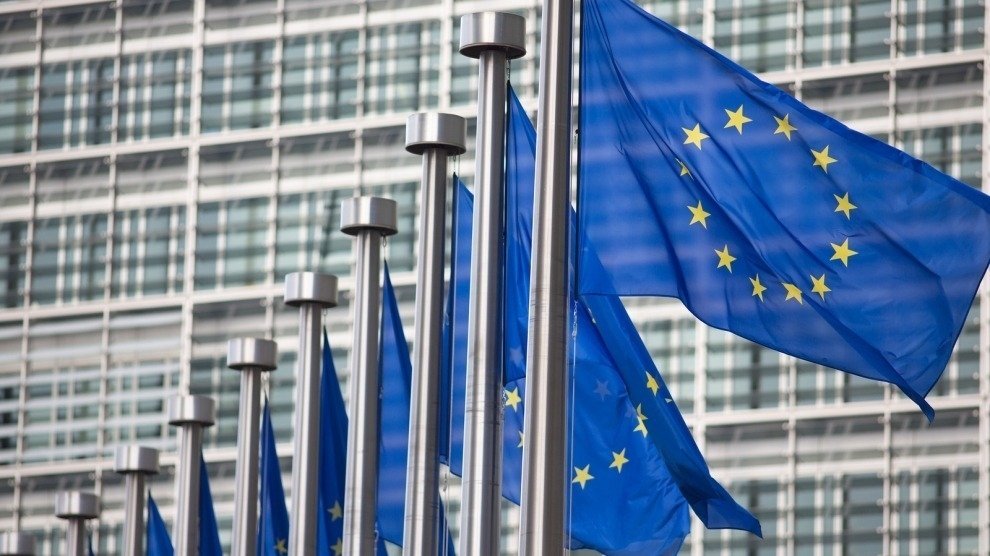EU to charge Apple over anti-competitive App Store fees this week
The European Union is expected to charge Apple over anticompetitive behavior allegations this week, almost two years after Spotify lodged its complaint with the European Commission about the App Store and Apple Music.

In 2019, Spotify wrote to the European Commission about the App Store's 30-percent commission for transactions. Spotify believed it put the company at a disadvantage as Apple Music wasn't affected by the same charge.
The complaint helped launch a probe by the European Commission in June 2020 into the App Store, one which may result in formal charges being placed against Apple in the near future. The Financial Times claims EU competition chief Margrethe Vestager will issue the charges later in the week.
The charges will apparently take Apple to task over the App Store's rules, which are said by people familiar with the announcement to have broken EU law.
At the time of the 2020 investigation's launch, Vestager proposed it seemed that Apple had created a "gatekeeper" role for itself regarding the "distribution of apps and content to users of Apple's popular devices."
The investigation into the App Store rules isn't the only activity the European Commission is looking into regarding Apple. At the same time as the App Store probe, another was launched to Apple Pay, over Apple's conditions on how it is used in apps and websites, as well as Apple's reserving of NFC-based transactions for its own service.
Stay on top of all Apple news right from your HomePod. Say, "Hey, Siri, play AppleInsider," and you'll get latest AppleInsider Podcast. Or ask your HomePod mini for "AppleInsider Daily" instead and you'll hear a fast update direct from our news team. And, if you're interested in Apple-centric home automation, say "Hey, Siri, play HomeKit Insider," and you'll be listening to our newest specialized podcast in moments.

In 2019, Spotify wrote to the European Commission about the App Store's 30-percent commission for transactions. Spotify believed it put the company at a disadvantage as Apple Music wasn't affected by the same charge.
The complaint helped launch a probe by the European Commission in June 2020 into the App Store, one which may result in formal charges being placed against Apple in the near future. The Financial Times claims EU competition chief Margrethe Vestager will issue the charges later in the week.
The charges will apparently take Apple to task over the App Store's rules, which are said by people familiar with the announcement to have broken EU law.
At the time of the 2020 investigation's launch, Vestager proposed it seemed that Apple had created a "gatekeeper" role for itself regarding the "distribution of apps and content to users of Apple's popular devices."
The investigation into the App Store rules isn't the only activity the European Commission is looking into regarding Apple. At the same time as the App Store probe, another was launched to Apple Pay, over Apple's conditions on how it is used in apps and websites, as well as Apple's reserving of NFC-based transactions for its own service.
Stay on top of all Apple news right from your HomePod. Say, "Hey, Siri, play AppleInsider," and you'll get latest AppleInsider Podcast. Or ask your HomePod mini for "AppleInsider Daily" instead and you'll hear a fast update direct from our news team. And, if you're interested in Apple-centric home automation, say "Hey, Siri, play HomeKit Insider," and you'll be listening to our newest specialized podcast in moments.

Comments
Then I won't pay much attention to what their legal systems do anymore, they are a total joke waste of space.
https://youtu.be/GXE_n2q08Yw
Apple has been hindering web apps for years. The support for PWAs has been just added, most probably because of all anti-competitive law suits around the world.
But Apple is still playing wrong, very wrong. The following is happening under iOS and it has been always this way:
I have simply no resources and time for suing Apple, but this is simply another prove for the anti-competitive behaviour of Apple.
If anyone from Epic or Spotify or any other company is reading this: just try that out yourself and you’ll get new proof for Apple’s anti-competitive behaviour. It is all about forcing everyone into AppStore.
But since they have created an app store where third parties can sell their ware, they have a legal obligation to maintain a fair market. They can't have their cake (by getting all the third party app ecosystem) and eat it too (by using anti-competitive measures against these third party developers). Remember, the legal suits and complaints are by these third party developers and not by the government. They have every legal right to expect a free and fair market and to sue when they don't get it.
It is not too much to ask that every apple app also pass through the same gates that third party apps pass through.
Apple apps should have access to the same capabilities that third party apps do. (Otherwise how is it different from IE and Netscape?)
The problem is when that 'brick and mortar store' owns the entire commerce platform and prevents other stores from even existing on it.
The analogy to brick and mortar stores breaks down right there. You can freely move from one brick and mortar store to another and no direct cost to you nobody is impeding your access to other stores.
Wireless networks which are subject to standardisation and direct government regulation are irrelevant here.
They do.
And they do.
Do you have any evidence otherwise?